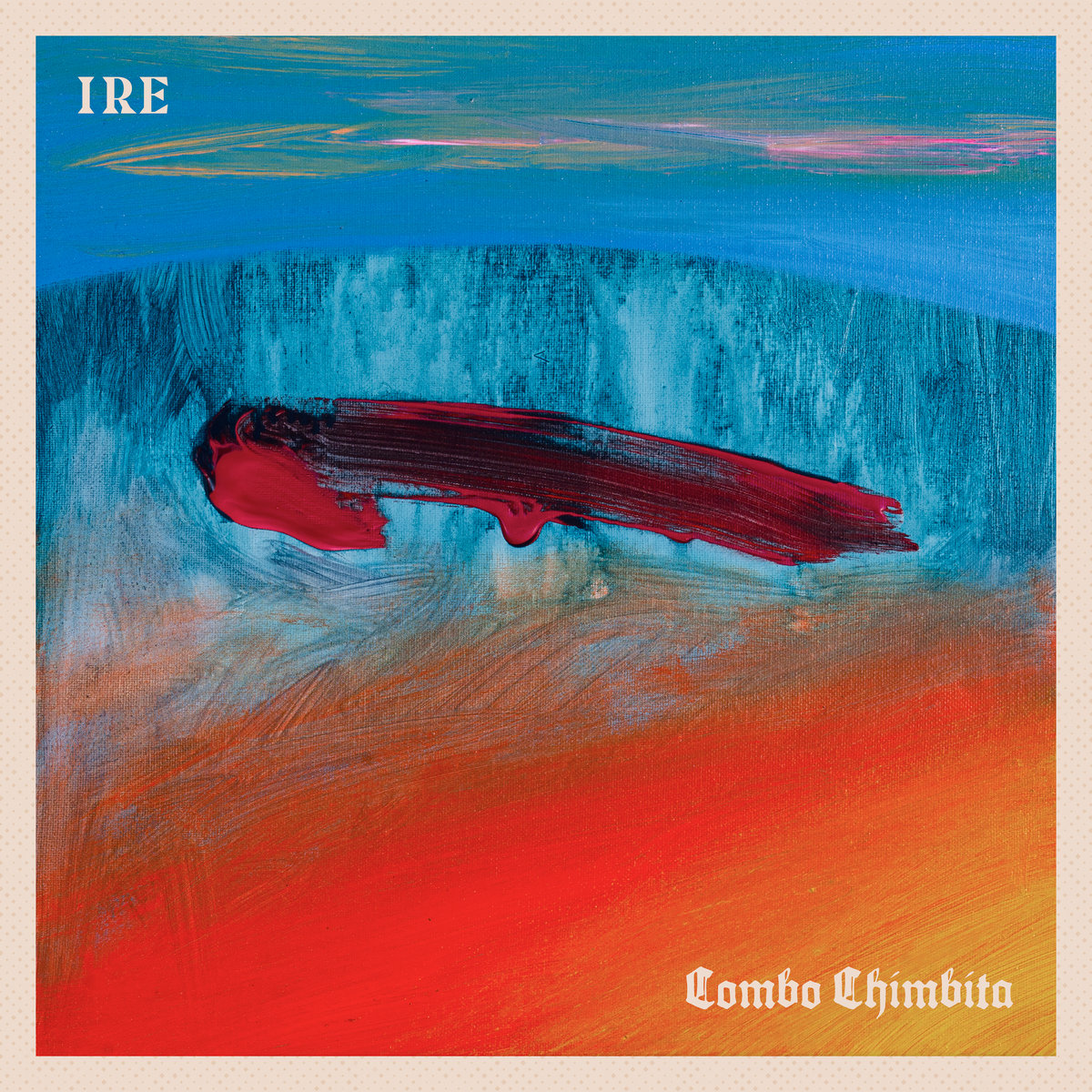I figure Combo Chimbita‘s self-descriptor “cumbia-not cumbia” could be considered a playful wink to their overall mindset. The New York-based collective harness a pioneering ethos, not interested in dipping into solidified traditions. Their music breathes perpetual flux, or perhaps a sense of endless possibility.
In any case, Combo Chimbita’s astounding new album IRE refers to a reciprocal conversation between ‘spiritual elders’ and ‘revolutionary future in the making’, to paraphrase the band’s press release. To put it in layman’s terms: music rich and untethered from imperialistic tropes.
That being said, Combo Chimbita do understand the potential weight of words, even if their genre-crossing music tends to speak even louder. For one, they consistently refer to their work as a well-honed synthesis of Abya Yala – the Kuna term for ‘the Americas’ – with a revisionist’s disposition. “The word “Americas” has a very dark and negative energy, derived from colonization, slavery, and the genocide of indigenous peoples,” the band’s bass player Prince of Queens remarked in this interview. “So, in a way, we are trying to reimagine where we are, where we come from, and where we are going starting by questioning what has been taught to us all our lives as unquestionable facts.”
Even beyond the political context, there’s something irreverent about the way IRE transcends its complex tapestry of reference points. Listening to the album, it immediately becomes clear that all band members uphold a crate digger’s inquisition for basically any type of music imaginable: jazz, reggae, African folk, soul, latin, alternative rock, funk – well, you name it. Over time, they have cultivated all those creative exploits in this unspoken, instinctive way.
Sonically speaking, the spine-chilling opening cut “Oya” – a paean for the feminine deity of Yoruban lore – strikes as a sun-kissed pan-tropical counterpart to Angelo Badalamenti’s iconic Twin Peaks theme. But Caroline Oliveros’ resonant voice transcends it to a whole different emotional level. Around the 1:48 mark, she soars into an even higher register, and the sorrow unshackling from within hits you physically.
With your defense mechanisms expertly crushed from the outset, “Babawalo”‘s demonic psych-rock leanings immediately take possession. The song’s climax alone is simply spectacular, like an outgrowth of punk rock energy chest-bursting out of its original Afro-Caribbean inflections. The song refers to the Yoruban term for ‘father of the mysteries’ – oracle figures who transmit divine messages across generations.
Whether it’s past or present influences, Combo Chimbita concentrate the music’s spiritual essence like a torrent of lighting in the palm of their hand. “Memoria” – with its vibrant fusion of dub and cumbia – oozes the lowrider-bumping swagger of a West Coast hip-hop track. The sheer joy is rooted in earnest melancholia, as Oliveros recollects the passing of a family member. A lower register voice, similar to Funkadelic’s mesmeric, free-form track “Good Thoughts, Bad Thoughts” ramps up the bluster some more.
True to the band’s goal to present a gateway between diasporic narratives and modern anxieties, the music often seems to take on a different shape and texture, a cross-dimensional trek between the modular spirit world and the physicality of a band in a room. There’s a constant fluidity, a continuum of becoming throughout IRE, and the band stubbornly, almost gleefully, refuse to return earthbound. Organically, their music becomes a guiding energy source for bigger issues – such as queer and trans inclusivity – the band wishes to communicate, often in a stunning visual performance.
Though there are plenty of inventive ensembles with a spearheading, futuristic mindset, the astounding expressive depth of Oliveros’ singing grants Combo Chimbita its distinct moxie. She can beguile the listener into a daze, like on the atmospheric ballad “Sin Tiempo”, or exult with an almost operatic command (“La Perla”). When Combo Chimbita plunge into more polyrhythmic forays, like on “Mujer Jaguar”, she turns into a conjuror of spirits: even the texture of her voice becomes more ragged and piercing, as if someone else has taken over the fiber of her consciousness.
Having recorded the album in 2020 in several places – including Puerto Rico and Colombia – the narrative of IRE as a record acutely conveying a global uprising seems feasible, though maybe a little bit too archaic to really live up to. Fortunately, Combo Chimbita don’t appear too mired in their music’s rich esoterica and inherently queer sensibility, making them implicit within the catharsis of performing. Oliveros said in the press release how many of these songs are in fact “gifts I decided to give to myself”. Indeed, IRE strikes as an affirmation of the individual joy that often appears too elusive to fully attain.

